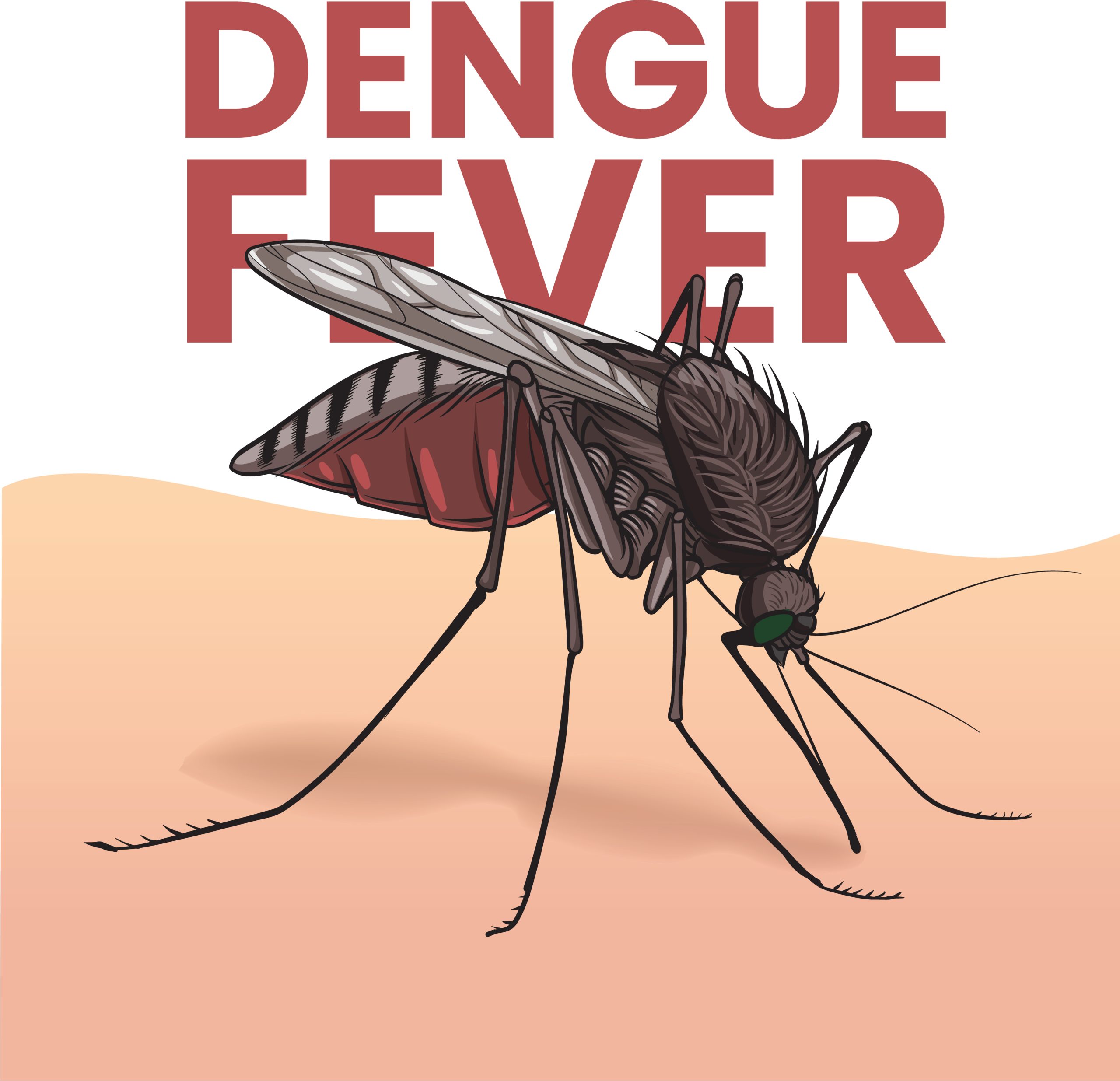Dengue Fever Treatments-various aspects-
Dengue fever treatment emphasizes symptom management and complication prevention, as there is no designated antiviral medication; it requires rest, hydration, and pain relief with acetaminophen while steering clear of aspirin and other NSAIDs.


Here’s a more detailed breakdown:
General Management:
Rest: Obtaining sufficient rest is essential for recovery.
Hydration: Consuming ample fluids (water, juice, electrolyte solutions) is critical to avoid dehydration.
Pain Relief: Acetaminophen (Tylenol) can assist in lowering fever and alleviating pain.
Avoid NSAIDs: Aspirin, ibuprofen (Advil, Motrin), and other NSAIDs should be sidestepped as they can heighten the risk of bleeding.
Prevent Mosquito Bites: Take steps to prevent mosquito bites, as dengue is spread by infected mosquitoes.
Severe Cases:
Hospitalization:
In situations of severe dengue (dengue hemorrhagic fever or dengue shock syndrome), hospitalization is required for careful monitoring and treatment.
Intravenous Fluids:
IV fluids and electrolytes are administered to replenish fluids and electrolytes lost through vomiting or diarrhea.
Blood Transfusions:
In certain cases, blood transfusions may be necessary to manage severe bleeding or low platelet counts.
Monitoring:
Close observation of vital signs, including blood pressure and platelet count, is crucial.
Important Considerations:
Consult a Doctor: If you think you have dengue fever, seek medical advice quickly.
Warning Signs: Be vigilant for warning signs of dengue, such as severe abdominal pain, persistent vomiting, and bleeding, and pursue immediate medical attention if these arise.
No Specific Antiviral Treatment: There is no specific antiviral medication for treating dengue.
Vaccines: Dengue vaccines exist in some countries, but they are not accessible in the continental United States.
Focus on Supportive Care: Treatment aims at supportive care to handle symptoms and avert complications.
Treatment
There is no specific therapy available for dengue fever.


During the recovery phase from dengue fever, ensure you consume an adequate amount of fluids. Contact your physician immediately if you notice any of the following dehydration indicators:
Diminished urination
Limited or absent tears
Dryness in the mouth or lips
Fatigue or disorientation
Cold or damp extremities
The over-the-counter (OTC) medication acetaminophen (Tylenol, and others) may assist in alleviating muscle discomfort and fever. However, if you are experiencing dengue fever, it is advisable to steer clear of other OTC pain relief medications, including aspirin, ibuprofen (Advil, Motrin IB, and others), and naproxen sodium (Aleve). These pain relief drugs can heighten the risk of bleeding complications associated with dengue fever.
In cases of severe dengue fever, you might require:
Supportive treatment within a hospital
Intravenous (IV) fluid and electrolyte replenishment
Monitoring of blood pressure
Transfusion to compensate for blood loss
Preparing for your appointment
You will probably begin by meeting with your primary care provider. However, you might also be directed to a physician who focuses on infectious diseases.
Since appointments can be short and there is usually a lot to discuss, it is advisable to be thoroughly prepared for your visit. Here is some information to assist you in getting ready and what to anticipate from your doctor.
What you can do
Document any symptoms you are experiencing, including any that may appear unrelated to the purpose of your visit.
Record important personal information. Include your international travel history, with dates and countries visited, as well as medications taken during your travels. Bring a copy of your immunizations, including vaccinations received before travel.
Compile a list of all medications you are taking. This should include any vitamins or supplements that you regularly consume.
Prepare questions to ask your doctor. Drafting a list of questions can help you maximize the time spent with your physician. Organize your questions from most critical to least critical in case time runs short.
For dengue fever, some fundamental questions to pose to your doctor include:
What is the most probable cause of my symptoms?
What types of tests do I need?
What treatment options are available?
How long will it take before I start feeling better?
Do you have any brochures or other printed resources that I can take home with me? What websites do you recommend?
What to expect from your doctor
Be ready to respond to questions from your doctor, such as:


When did your symptoms start?
Have your symptoms been constant or intermittent?
How intense are your symptoms?
Is there anything that seems to alleviate or exacerbate your symptoms?
Where have you traveled over the past month?
Did you experience any mosquito bites while traveling?
Have you recently been in contact with anyone who was sick?
How can you recover from dengue fever?
What is the treatment for dengue fever?
Staying hydrated by consuming plenty of water and fluids.
Resting as much as you can.
Managing pain with acetaminophen only.
Avoid using ibuprofen or aspirin. This may raise your risk of severe internal bleeding.
What is the most effective treatment for dengue fever?
The most effective treatment for dengue fever emphasizes symptom management and complication prevention, as there is no particular antiviral medication for a cure. This entails resting, staying hydrated, and using acetaminophen for pain relief, while steering clear of aspirin and other NSAIDs.
Here is a more comprehensive overview:
No Specific Treatment: Dengue fever is triggered by a virus, and there is no specific drug to eradicate it.
Supportive Care: The treatment prioritizes symptom management and complication prevention.
Rest and Hydration: Ensuring sufficient rest and fluid intake is essential to avert dehydration.
Pain Relief: Acetaminophen (such as Tylenol) can aid in alleviating fever and discomfort.
Avoid NSAIDs: Aspirin, ibuprofen, and other NSAIDs should be avoided since they may heighten the risk of bleeding.
Seek Medical Attention: If symptoms worsen or fail to improve, or if you encounter severe symptoms, promptly seek medical assistance.
Hospitalization: In critical situations, hospitalization may be required for intravenous fluids and additional interventions.
Prevent Mosquito Bites: Implementing measures to avert mosquito bites is vital to halt the disease’s spread.
Which fruit is ideal for dengue?
For recovery from dengue fever, fruits that are high in vitamin C such as oranges, papayas, guavas, and strawberries are suggested for enhancing immunity, along with hydrating fruits like watermelon and coconut water.
Here’s a closer examination of the advantages of these fruits:
Vitamin C-rich fruits:
Oranges, lemons, and grapefruits: These citrus fruits are exceptional sources of vitamin C, which is recognized for enhancing the immune system and assisting in warding off infections.
Papaya: The leaves of papaya are noted for their potential to boost platelet count, which is crucial during dengue fever.
Guava: Guavas serve as another beneficial source of vitamin C and antioxidants.
Strawberries: Strawberries are abundant in vitamin C and antioxidants.
Hydrating fruits:
Watermelon: Watermelon is a hydrating fruit that can help maintain the body’s hydration, which is vital during dengue fever.
Coconut water: Coconut water provides a natural source of water and electrolytes, which can aid in replenishing fluids lost during dengue fever.
Other fruits to consider:
Pomegranate: Pomegranate is high in iron, which is essential for sustaining a healthy platelet count.
Kiwi: Kiwifruit is loaded with various phytonutrients, minerals, and vitamins, including vitamin C, which can enhance immunity.
Dragon fruit: Dragon fruit is filled with antioxidants, iron, and fiber, which can support the development of cellular immunity.
Banana: Bananas are simple to digest and rich in potassium, vitamin B6, and vitamin C, which can assist with digestion and maintaining electrolyte balance.








